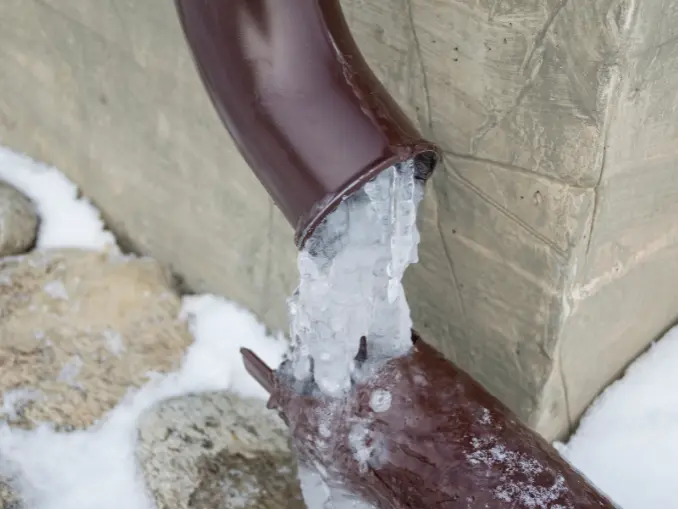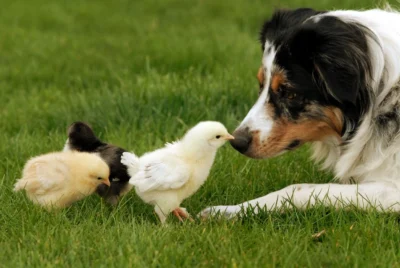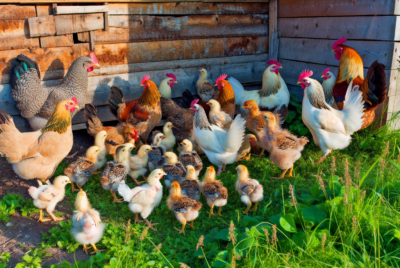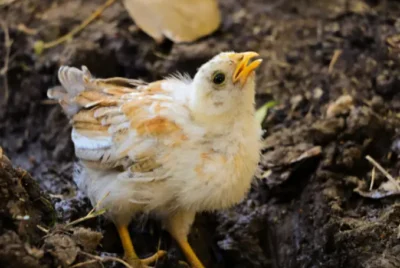How to Keep Chicken Water from Freezing: Practical Tips for 2023
Winter can be a challenging time for chicken owners, especially when providing fresh water for their flock. When temperatures plummet, keeping your chickens’ water from freezing becomes a critical task to ensure their health and well-being.
But worry not. We have tested and gathered practical tips on keeping chicken water from freezing even in the cold climate’s harshest conditions.
The Importance of Fresh Water for Chickens
Chickens require daily access to fresh water to maintain optimal health and support their egg production. Ensuring a supply of clean, room-temperature water, particularly during the colder months when freezing temperatures are challenging to manage, is critical for their well-being.
Keeping the waterer outside the chicken coop not only helps keep the chicken coop clean, and dry but also reduces bacterial growth, promoting the health of your flock. Ensuring your chickens have fresh water throughout the winter can be a difficult task.
However, a few measures can help maintain their daily water access. We’ll explore solutions to prevent your flock’s water from freezing, from off-the-grid methods to electric heaters.
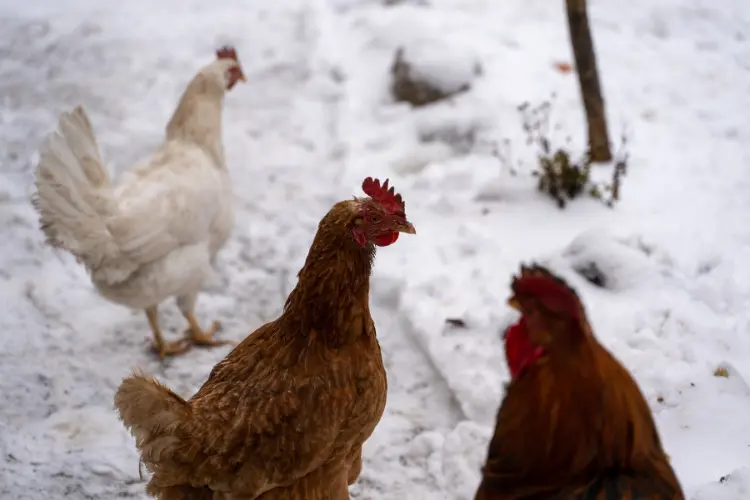
Non-Electric Solutions to Prevent Freezing
When dealing with milder winter weather, non-electric solutions can be quite effective in preventing water from freezing. Some creative approaches include using rubber tubs, ping pong balls, and saltwater bottles.
These methods rely on insulating materials, surface movement, and heat absorption to slow down or prevent the freezing process, ensuring your flock has access to fresh water throughout the day.
Rubber Tubs and Insulating Materials
Tubs, such as large, black rubber tubs or livestock feed tubs, make excellent water containers for chickens during winter. Rubber is a fantastic insulator, and the greater surface area of an open feed dish helps lower the freezing point.
Positioning the black tub in an area where it can absorb heat from the sun’s energy can significantly improve the effectiveness of this method.
Remember that galvanized metal waterers can freeze quickly, potentially leaving your chickens without access to water. Hence, selecting rubber water containers is a wise choice to delay water freezing in chilly winter temperatures.
Ping Pong Balls and Surface Movement
The ping pong ball technique is another ingenious non-electric solution to prevent water from freezing. By adding ping pong balls to the water container, surface movement is created, which helps prevent ice formation and keeps the water accessible for chickens to drink.
For the ping pong ball technique to work, keeping the balls in motion is key. Locate the ping pong balls float and waterer in an open area where the wind can aid in moving the balls, this significantly enhances the effectiveness of this method.
The more bobbing objects, the more effective they will resist freezing. This results in a successful outcome.
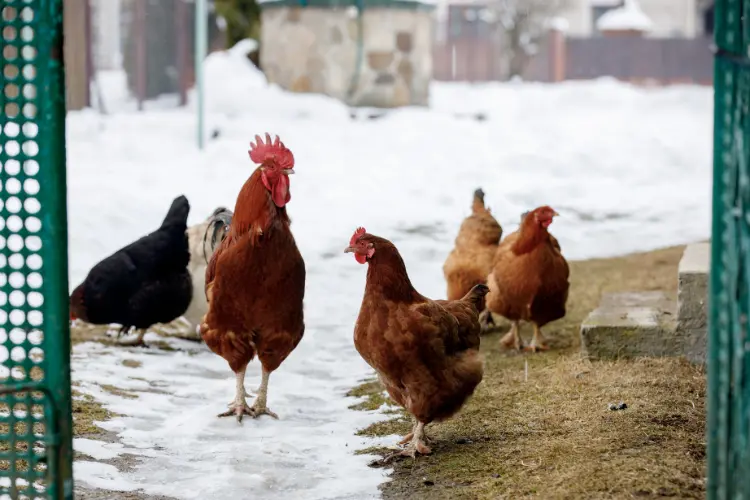
Saltwater Bottle Technique
The salt water bottle technique is an effective way to lower the freezing point of your flock’s drinking water without adding salt to it.
Using a salt water bottle can help prevent the water from a lower freezing point even in milder winter conditions, as salt-saturated water freezes at -6°F.
To use this technique, follow these steps:
- Fill a pristine bottle with a firm screwing cap with saltwater.
- Place the bottle in the chicken’s water source, separating the saltwater from the drinking water.
- Monitor the chickens to ensure they are drinking from the saltwater bottle and not consuming the salt directly, as direct salt consumption can be fatal to chickens.
Electric Solutions to Keep Water Unfrozen
In colder climates, electric solutions can be more effective in keeping chicken water from freezing. Heated bases and waterers, as well as aquarium electric water heaters alone, provide a reliable way to maintain water temperature.
However, when using electric solutions, it’s important to maintain safety measures like securing electrical connections and keeping cords away from the chickens.
We will examine heated bases and waterers, as well as aquarium heaters, detailing their benefits and safety measures to maintain the liquid state of your flock’s water during winter.
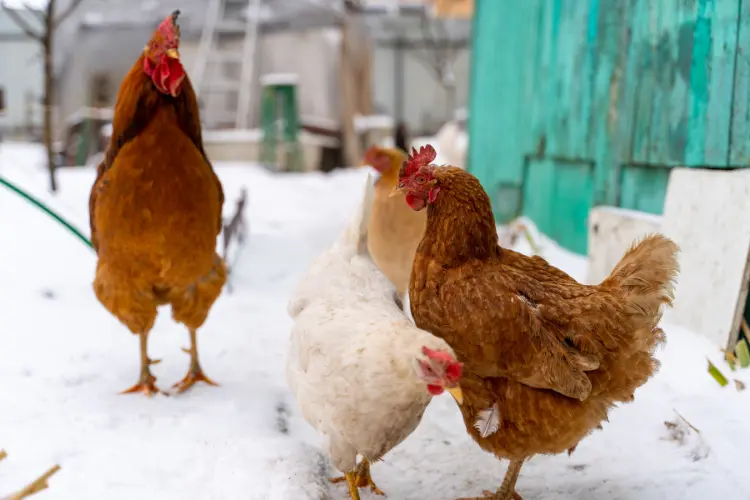
Heated Bases and Waterers
Heated bases, waterers, and heated pet bowls offer an excellent choice for ensuring your flock’s water stays unfrozen, even in temperatures as low as 10°F (-12°C).
These electrically heated water systems use a thermostat and turn on when temperatures reach close to freezing, providing your chickens with a steady supply of warm water.
However, using heated bases and waterers requires electricity and proper installation. To ensure the safety of your chickens and yourself, avoid using extension cords and keep all electrical connections out of reach.
Additionally, place the heated waterer base outside the coop on top of cement or stone, away from shavings.
Read also: Best Heated Chicken Waterers in 2023 (Must-Have Tools)
Aquarium Heaters and Safety Precautions
Aquarium heaters can also maintain water temperature in bucket nipple waterers or closed waterers. They provide just enough heat to prevent the water from freezing without actually heating it.
However, it’s essential to ensure that chickens cannot peck the heater to avoid damage and electrical shock.
Before using an aquarium heater, ensure it is appropriately placed and all electrical connections are secure.
Remember that while aquarium heaters can be cost-effective and energy-efficient, they require electricity, which could be inconvenient for some chicken owners.
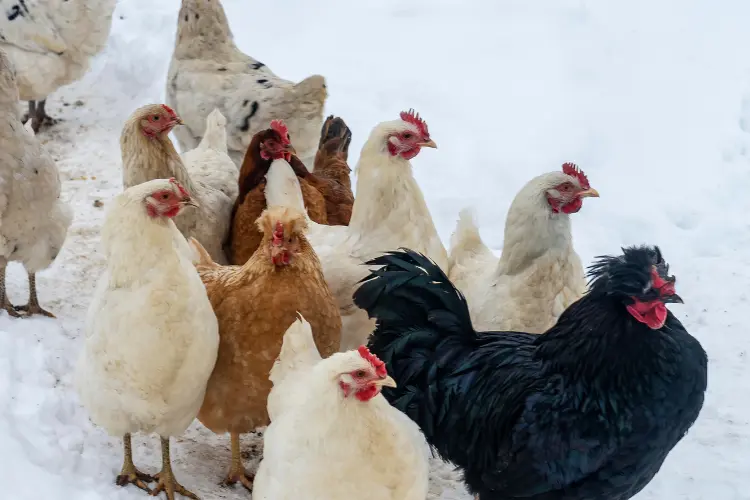
Utilizing Sunlight and Greenhouses
Harnessing the power of sunlight and greenhouses can help keep chicken water from freezing by creating a warmer environment for keep your chickens water and flock. Positioning the water container in a sunny location can take advantage of the sun’s heat and help keep the chicken water from freezing.
Constructing a mini-greenhouse around your chickens’ water source can also shield them from wind gusts and provide a slight ‘greenhouse effect’ within the enclosure.
Old windows or clear, heavy-duty plastic can be used to build a robust structure that will help keep your flock’s water from freezing.
Larger Water Containers and Proper Placement
Using larger water containers for your chickens has the advantage of taking longer to freeze compared to smaller ones, ensuring your flock has access to fresh water for a more extended period.
Additionally, placing the water container strategically, such as partially burying it in the ground, can help keep the water from freezing in an off-the-grid setup.
A large black rubber tub with a greater surface area can also be utilized to take advantage of the heat absorbed from the sun, further extending the time it takes for frozen water to freeze.
Tips for Breaking Ice and Thawing Frozen Waterers
Throughout the winter months, it’s important to routinely break ice and defrost frozen waterers to ensure your chickens have continuous access to fresh water.
Adding boiling water to the frozen waterers can quickly and effectively thaw the thin surface or thin layer of ice, but be sure to mix the boiling water with the freezing water to prevent it from being too hot for your chickens to drink.
After adding hot water, you must check the temperature with your hand to prevent burns and ensure safety.
Remember, providing your chickens with room temperature or slightly lukewarm water is the ideal way to keep them hydrated and healthy in cold weather.
Read also: How Do You Care for Chickens in the Cold Winter
Frequently Asked Questions
What can I put in my chickens water to keep it from freezing?
Keep your flock’s water from freezing in cold temperatures by using the salt-water bottle trick – enclose saltwater in a secure plastic bottle and place it in your flock’s water source. Just ensure not to add salt directly to the drinking water, as it can be lethal for chickens.
Can I use a heated pet bowl for my chickens?
Yes, heated pet bowls can provide a practical solution to ensure your chickens have access to fresh water during cold winter months.
How To Keep Chicken Water from Freezing Summary
Keeping chicken water from freezing during winter is crucial for maintaining the health and well-being of your flock.
With a bit of creativity and diligence, you can ensure your chickens have access to fresh water all winter long, contributing to their overall happiness and health.
If you’re interested in learning more about poultry care, consider exploring tips and tricks for chicken raising to keep your feathered friends thriving in all seasons on our website.

